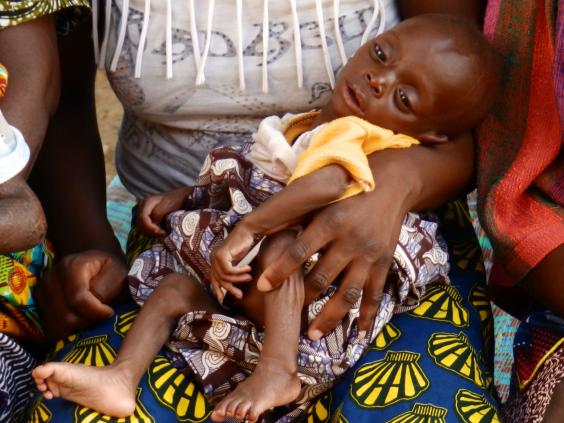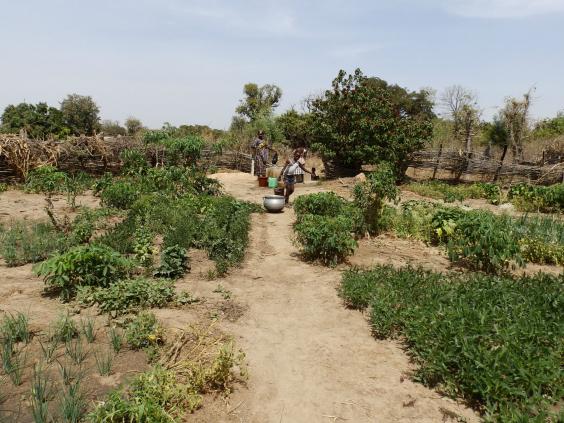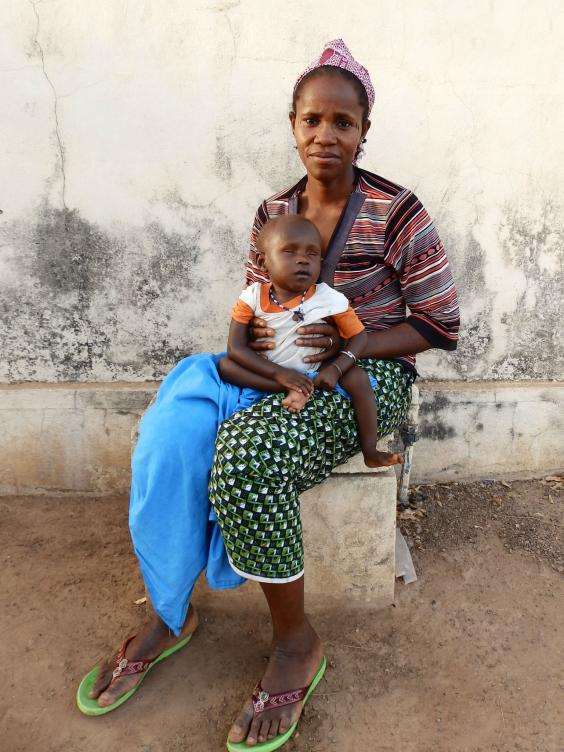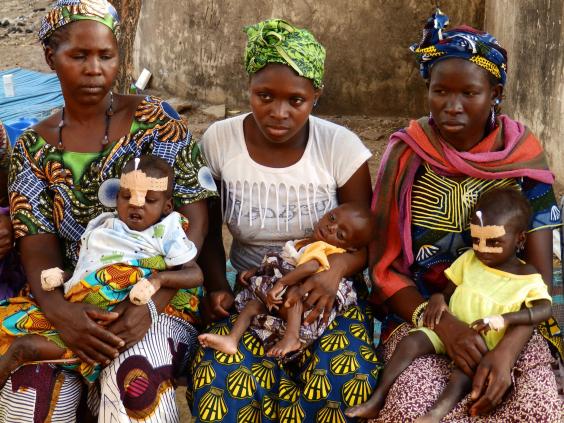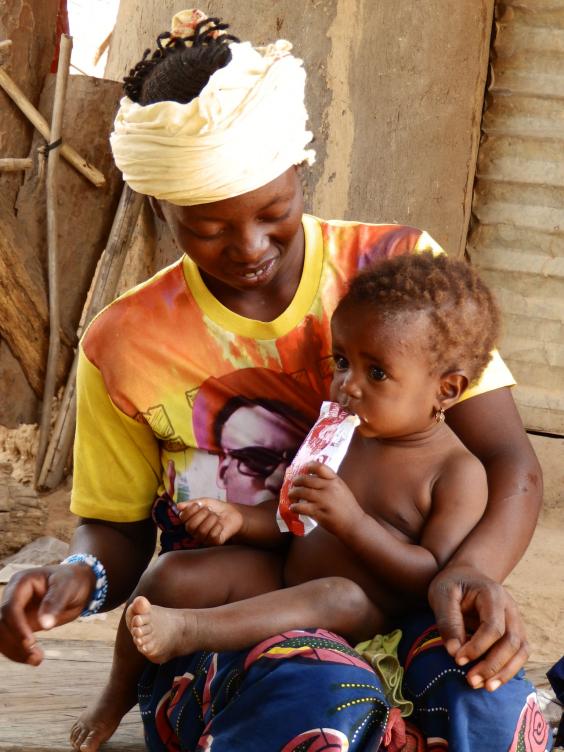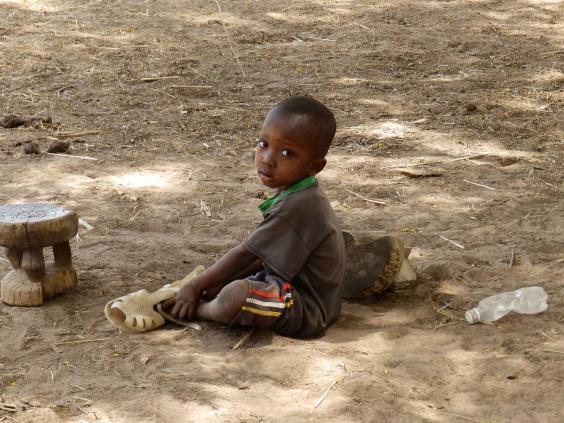Date: Tue, 19 Apr 2016 22:39:21 +0200
'The world needs to do better': The silent crisis killing Mali's children
Starvation has long been a problem in the West African nation of Mali, which is blighted by drought and food shortages on the edge of the Sahara.
But four years of an insurgency by rebels and Islamists in the north has made the situation even more dire, with more than 180,000 children aged under five expected to face starvation this year.
Only one in five has any hope of being treated.
“Being a mother, you can never be at peace because you don't know if your child is going to die or not,” says N'Badiala Keita, bouncing her baby daughter on her knee.
One-year-old Bansina was on the brink of death just a few months ago, wasting away like dozens of other children in the remote village of Sekokoto.
Food is scarce and water even more so, with families struggling to keep browning plants alive on sparse gardens dug out of the dust.
Mothers strap babies to their backs as they labour in the blazing sun, with their sons and daughters helping desperate efforts to grow crops that are unlikely to sustain families averaging six children.
The scenes are repeated across Mali, where much of the population lives in remote villages miles from access to food, clean water and health care.
The country has eighth highest infant mortality rate in the world, with many killed by severe actute malnutrition.
“We call it a silent crisis because we don't hear about it, we don't talk about it - these children are forgotten,” says Jean-Michel Grand, the director of Action Against Hunger UK.
The charity, known by its French acronym ACF, is working in some of the worst-affected areas of the country to treat children and try to stop the spread of malnutrition.
But the work can be dangerous, with one of the charity's staff murdered in war-torn northern Mali last year and warnings that humanitarian workers are being targeted by al-Qaeda-linked groups.
It is a struggle not only to stop the illness but to diagnose it, with many mothers unaware of what is happening to their children. Many seek treatment from traditional healers that has little effect.
“My daughter was losing weight, she had a running stomach,” Mahat Dansina recalls.
“It just wouldn't stop and she was crying all the time. I did not know what was happening to her.”
Sitting with her daughter Somita at ACF's malnutrition unit at Kita Hospital, Mahat says her daughter is two years old but her tiny size made her appear half that age.
Despite the girl's papery skin and wasted limbs, she is slowly gaining weight and has recovered enough to leave hospital and be treated with high-energy therapeutic food at home.
Mahat, however, fears for the future: “We try to grow food but there's no water for it.”
Many of the babies and toddlers at the hospital are on the brink of death, needing tubes to breathe and drips to feed them nutrients as they lie listlessly in their mothers' arms or in beds draped with mosquito nets in stifling rooms.
One young mother explains how she is unable to breastfeed her baby and has no money to buy food as her son started to waste away.
"The government need to do more," she says, cradling the little boy. "The world needs to do better."
Two children have died so far this year at the clinic, in the capital of the Kayes region - but most who pass through its doors are saved.
Martin-Pascal Guiedegbe, one of the health workers, says the starving children frequently contract pneumonia and other diseases that become fatal in their weakened state.
"Normally they will recover in size and height as they age but they are at a high risk of mental problems," he says.
"For some its learning difficulties, or they have a low IQ, and then when they have children the problem becomes cyclical."
But he is hopeful about the progress he and care workers across the country are making, with the aid of recently developed food sachets that treat children with a high energy combination of peanut butter, milk powder, vitamins and minerals.
ACF is taking the treatment to more children than ever before with a new project, funded by the Innocent Foundation, which sends community health workers into the most remote areas, allowing them to diagnose children and treat them before they become critically ill.
"I believe malnutrition can be eradicated in our generation," Mr Guiedegbe said. "I'm hoping we will be waving the flag of victory against hunger."
While lack of food is the primary issue, the problem is compounded by a lack of education on nutrition, breastfeeding problems from malnourished mothers and the difficulty to access health care.
Many women fall pregnant almost immediately after giving birth in a culture where birth control is scarce, leaving them struggling to feed one infant when the next arrives.
One woman whose child was treated by ACF told how her husband refused to drive their son to a clinic after a healer's traditional medicine failed and threatened to leave her.
"He was angry and said that if the child died it wouldn't be his problem,“ she said. ”Even if he abandons our son, I can't abandon him. If our child dies, I will be the loser."
